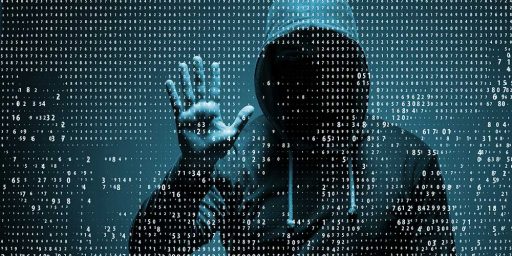CIA and FBI Cooperating on Counter-Terrorism
CIA Role Inside The USA Greater (USA Today, p.1)
The CIA has assigned dozens of case officers and analysts to work with FBI agents throughout the USA in the most extensive deployment of intelligence officers on domestic soil in the spy agency’s history. Officials at both agencies say the deployment, which pairs CIA officers with FBI agents in the bureau’s offices to assist with terror-related investigations, also represents the CIA’s broadest association with federal law enforcement since the CIA was created after World War II.
The CIA was created to gather foreign intelligence and is prohibited by law from participating in intelligence-gathering operations against U.S. citizens. It also has no law-enforcement powers. Intelligence and FBI officials say that the CIA officers are not involved in criminal investigations. Instead, according to four intelligence and FBI officials familiar with the relationship, the CIA officers are providing the FBI with instant access to international databases to determine whether domestic terror suspects might have contacts with terror organizations abroad. In Baltimore, FBI spokesman Barry Maddox says the CIA’s presence in the Baltimore field office provides “an instant pipeline†to the spy agency’s databases and an immediate contact point for the relay of important information. In addition, CIA analysts have conducted briefings for local police to help identify potential terrorist threats. Those briefings had been reported by The New York Times earlier this year.
The new relationship was prompted by demands from Congress that the agencies work more closely after the Sept. 11 attacks. The officials in both agencies, who asked not to be identified because of their agencies’ policies, won’t say exactly how many CIA officers and analysts are deployed. But in nearly every instance, they work with the nation’s network of 100 Joint Terrorism Task Forces. The task forces, whose number increased dramatically from about 34 prior to the Sept. 11 attacks, draw members from federal, state and local law enforcement agencies. The units were expanded quickly in an attempt at joining disparate police agencies against potential domestic terror threats.
Despite assurances that the CIA is not overstepping its bounds, the close working relationship makes some civil libertarians wary. “The location of these CIA officers definitely gives me pause,†says Ann Beeson, associate legal director at the American Civil Liberties Union. “We have been very concerned about the growing surveillance power of the government through these task forces. We still know very little about these task forces. It would be very troubling if the CIA were to be involved in a broader surveillance operation.â€
The so-called “stovepiping” of information that many have cited as a reason why the 9/11 attacks were not detected ahead of time appears to be greatly diminished. Indeed, this change has been underway for quite some time now and was in place before the 9/11 Commissioned issued its report recommending precisely this sort of cooperation.
As long as the working relationship remains centered on counterterrorism, the civil liberties concerns are overblown. Obviously, if information gained through the tools of covert spying are used, absent warrants and other Constitutionally-mandated protections, to augment domestic law enforcement activities, it would be problematic. Presumably, the agencies have an institutional memory of the crackdowns that happened in the 1970s when those lines were crossed and will take actions necessary to prevent that happening again.



